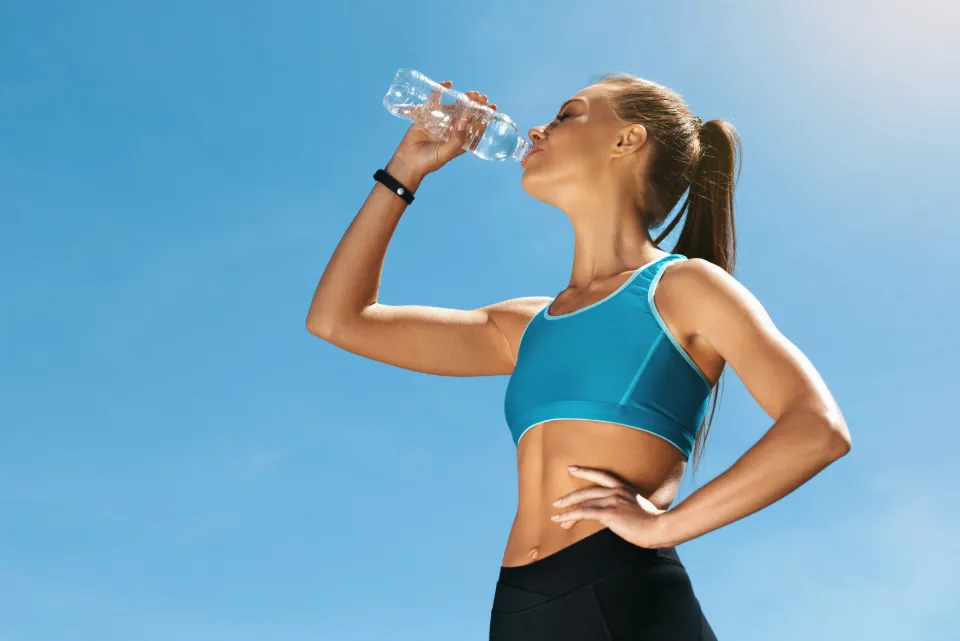
Are You Drinking Water All Wrong?
Are You Drinking Water All Wrong?
We’ve all heard the rule: drink eight glasses of water a day to stay healthy. But is this really the magic number, or is it just a one-size-fits-all myth? The truth is, your hydration needs are unique and depend on factors like your activity level, environment, and even the food you eat. Today, let’s uncover where this advice came from and what hydration actually means for your health.
The Origin of the 8-Glass Rule
The idea of drinking eight 8-ounce glasses of water daily (64 ounces) has been around for decades, but where did it come from? This guideline is often traced back to a 1945 recommendation from the U.S. Food and Nutrition Board, which suggested that people need about 2.5 liters (roughly 8 cups) of water daily. What’s often overlooked is the second part of that advice: most of this water comes from food and other beverages.
Over time, the message was simplified to “drink eight glasses of water a day,” leaving out the context that hydration comes from a variety of sources. While it’s a useful starting point, this advice doesn’t consider individual differences in water needs.
How Hydration Needs Vary
Your body’s hydration needs aren’t static—they depend on several factors that can significantly increase or decrease the amount of water you need.
Activity Level
The more active you are, the more water your body loses through sweat. Whether you’re working out, doing physical labor, or spending time outdoors, staying hydrated is crucial to replace lost fluids and maintain optimal performance. Athletes, in particular, may need to drink far more than eight glasses to stay properly hydrated.
Environment
The climate you live in plays a big role in hydration needs. Hot, humid environments cause you to sweat more, while cold, dry climates can increase water loss through your breath. Even air-conditioned or heated indoor spaces can dehydrate you by reducing humidity levels, making you lose moisture without realizing it.
Diet
Your food choices contribute significantly to your hydration. Foods like fruits, vegetables, and soups contain high water content, which helps keep you hydrated. On the other hand, a diet high in salt, caffeine, or alcohol can dehydrate your body, increasing your water needs.
Body Size and Health
Larger individuals generally require more water due to higher metabolic demands. Health conditions like fever, diarrhea, or kidney issues can also impact how much water your body needs. Pregnant and breastfeeding women have increased hydration requirements as well.
Signs of Dehydration
Your body has ways of telling you when it needs more water, and thirst isn’t always the first sign. Mild dehydration can cause symptoms like headaches, fatigue, dry skin, and even poor concentration. Dark-colored urine is another reliable indicator that you need to drink more water.
It’s important to note that waiting until you feel thirsty isn’t always the best strategy—by the time thirst kicks in, you’re often already mildly dehydrated.
Can You Drink Too Much Water?
While staying hydrated is important, overhydration can also be harmful. Drinking excessive amounts of water can dilute the electrolytes in your blood, leading to a dangerous condition called hyponatremia, or water intoxication. This is rare, but it’s a reminder that hydration is about balance, not just drinking as much water as possible.
How to Find Your Ideal Hydration Level
Instead of focusing on a rigid rule like eight glasses a day, tune into your body and adjust your water intake based on your unique needs.
Use your thirst as a guide—drink when you’re thirsty and sip throughout the day.
Check your urine color—pale yellow is a good indicator of proper hydration.
Adjust for activity and environment—drink more on hot days, during exercise, or when you’re sweating heavily.
Incorporate water-rich foods into your meals—fruits like watermelon, cucumbers, and oranges can boost your hydration naturally.
Special "Light Water" Machine

Now there is a brand-new, state-of-the-art Light Water Machine, made by Lifewave®. This machine is designed to trap light inside the water molecules and deliver it inside your body for maximized healing effects. It has been proven to do things like increase NAD, collagen production, and fully hydrate the cells. The stories that I have heard from friends with chronic conditions are nothing short of miraculous. Click here learn more about this revolutionary technology.
Final Thoughts
The eight-glass rule may be a useful starting point, but hydration isn’t one-size-fits-all. Your needs depend on your lifestyle, environment, and even what’s on your plate. By tuning into your body’s signals and understanding your unique requirements, you can stay hydrated without obsessing over arbitrary numbers. Remember, hydration is about quality as much as quantity—so enjoy that glass of water, but don’t forget to eat your fruits and veggies too.
